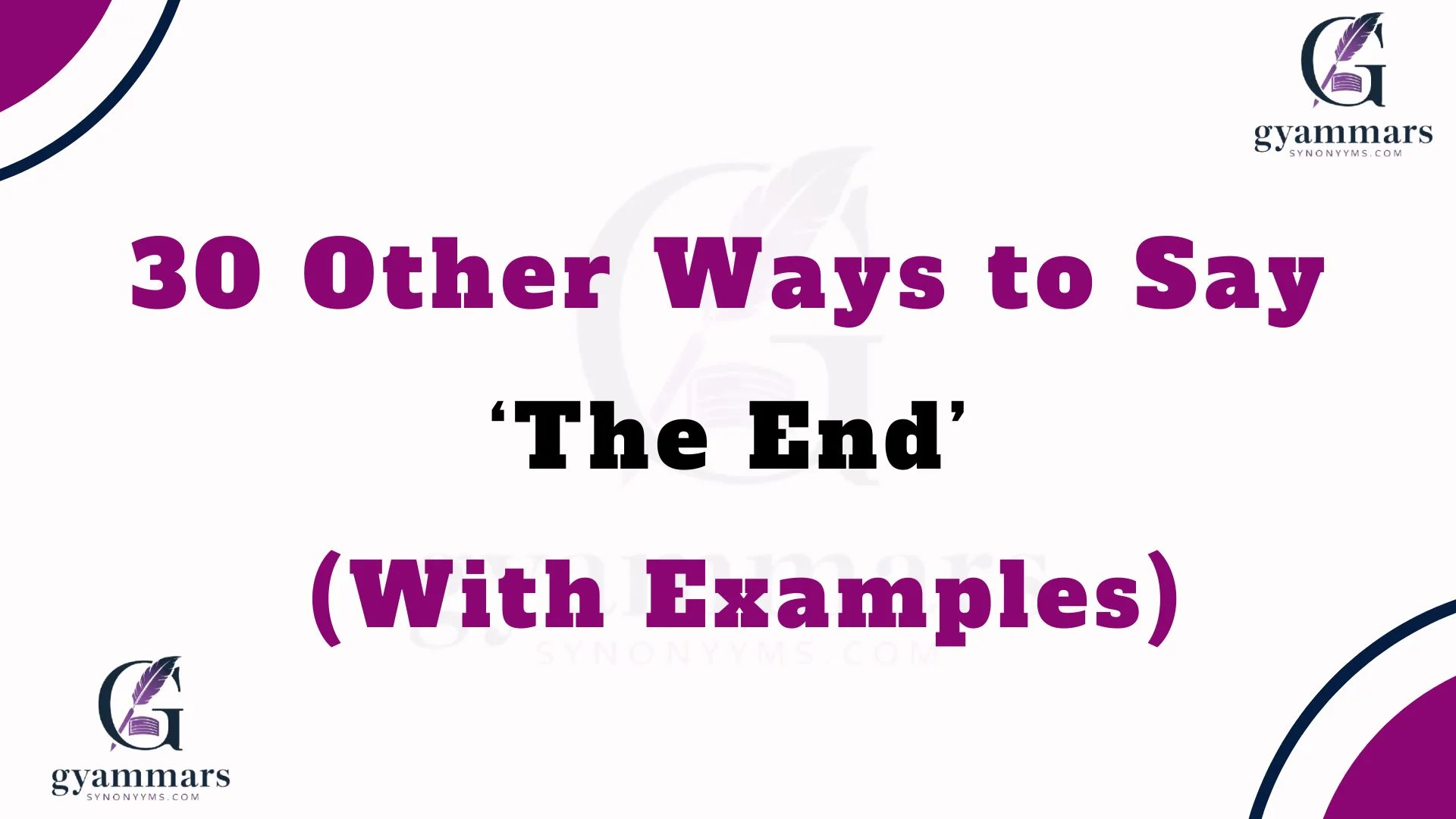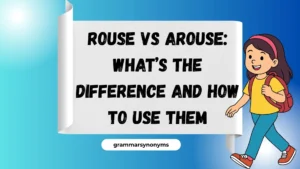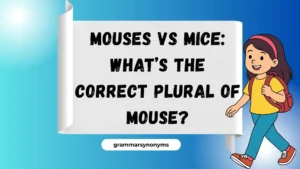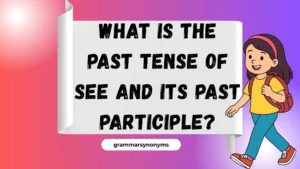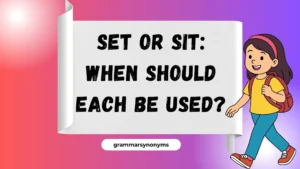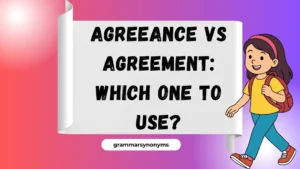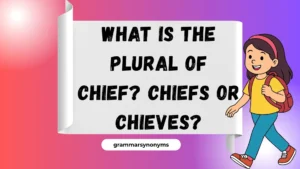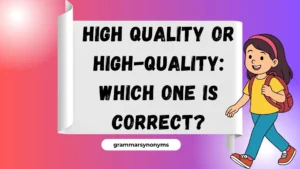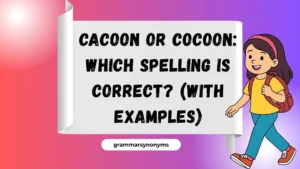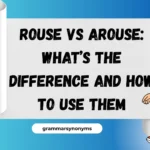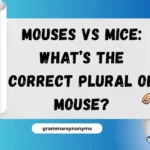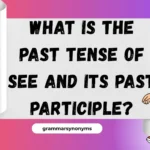Words hold power. The way we close a story often lingers with the reader long after they’ve finished. Instead of always saying “The End,” choosing an alternative can make your writing feel more personal, warm, or meaningful. These phrases not only capture the conclusion of a tale but also leave behind an emotion—whether that’s hope, reflection, or closure.
Below, you’ll discover 30 other ways to say “The End” in a story, along with explanations and examples to help you pick the right tone for your message.
What Does “The End” Mean?
“The End” is a traditional phrase used at the conclusion of stories, films, or creative works. It signals to the audience that the narrative is complete. While effective, it can sometimes feel too blunt or impersonal, which is why alternatives are valuable.
Is It Professional/Polite to Say “The End”?
Yes, it is professional and polite in most contexts—especially in books, presentations, or stories. However, in personal writing or heartfelt communication, alternatives can feel more engaging and thoughtful.
Pros or Cons of Saying “The End”
Pros: Clear, traditional, universally understood. Cons: Can feel plain, abrupt, or lacking emotional resonance.
Synonyms For ‘The End’
- The Final Chapter
- Closing Scene
- The Curtain Falls
- The Story Concludes
- Epilogue
- And They Lived Happily Ever After
- Until We Meet Again
- Fin
- The Journey Ends
- To Be Continued
- The Closing Line
- That’s a Wrap
- The Tale Ends Here
- All Said and Done
- The Last Word
- Over and Out
- The Finish Line
- The Closing Act
- The Final Word
- The End of the Road
- The Closing Chapter
- Thus It Ends
- The Tale is Told
- The Story is Written
- Done and Dusted
- That’s the Story
- The Grand Finale
- With This, We Close
- So Ends the Tale
- The Last Page
1. The Final Chapter
Definition: A phrase that suggests the last portion of a journey or story.
Explanation: This phrase adds depth and makes the ending feel like part of a bigger narrative.
Scenario Example: “And so, we come to the final chapter of this unforgettable tale.”
Best Use: Ideal for novels, speeches, or reflective essays.
Tone: Thoughtful, reflective.
Additional Notes: Great for both creative and professional contexts.
2. Closing Scene
Definition: A term borrowed from theater or film, signaling the last visual or emotional moment.
Explanation: Adds drama and imagery to an ending.
Scenario Example: “The curtain falls on our closing scene, where hope outshines sorrow.”
Best Use: Best for plays, performances, or dramatic writing.
Tone: Poetic, theatrical.
Additional Notes: Works well when you want to create a cinematic vibe.
3. The Curtain Falls
Definition: A theatrical way of signaling the end.
Explanation: Evokes the image of a stage performance wrapping up.
Scenario Example: “And with that, the curtain falls on their story.”
Best Use: Great for stories that mirror dramatic performances.
Tone: Dramatic, classic.
Additional Notes: Best for fiction or public storytelling.
4. The Story Concludes
Definition: A formal and clear phrase for finishing a tale.
Explanation: Direct but slightly more polished than “The End.”
Scenario Example: “With gratitude, the story concludes here.”
Best Use: Suitable for professional or academic contexts.
Tone: Formal, respectful.
Additional Notes: Works well in research, biographies, or structured storytelling.
5. Epilogue
Definition: A final section that reflects after the main story ends.
Explanation: Offers closure with reflection or future hints.
Scenario Example: “In this epilogue, we see the seeds of tomorrow planted.”
Best Use: Novels, speeches, or reflective pieces.
Tone: Reflective, thoughtful.
Additional Notes: Suggests continuation beyond the immediate story.
6. And They Lived Happily Ever After
Definition: A classic fairy-tale ending.
Explanation: Implies a joyful resolution.
Scenario Example: “As the sun set, they lived happily ever after.”
Best Use: Children’s stories, romantic tales.
Tone: Hopeful, dreamy.
Additional Notes: Works well for lighthearted narratives.
7. Until We Meet Again
Definition: Suggests temporary closure, with hope of reconnection.
Explanation: Adds warmth and continuity.
Scenario Example: “This tale ends here—until we meet again.”
Best Use: Personal stories, speeches, or letters.
Tone: Warm, hopeful.
Additional Notes: Perfect for ongoing storytelling.
8. Fin
Definition: French for “end.”
Explanation: Widely used in films or creative works for a stylish flair.
Scenario Example: “The credits roll. Fin.”
Best Use: Artistic, creative projects.
Tone: Elegant, international.
Additional Notes: Gives a cultured, cinematic finish.
9. The Journey Ends
Definition: Focuses on the conclusion of a path or adventure.
Explanation: Works for metaphorical or literal journeys.
Scenario Example: “After years of searching, the journey ends.”
Best Use: Travel stories, adventure novels.
Tone: Reflective, conclusive.
Additional Notes: Great for personal growth stories.
10. To Be Continued
Definition: Suggests there’s more to come.
Explanation: Keeps the reader curious and engaged.
Scenario Example: “The tale pauses here—to be continued.”
Best Use: Serialized writing, suspense stories.
Tone: Suspenseful, playful.
Additional Notes: Works best if you actually plan a continuation.
11. The Closing Line
Definition: The final statement that completes the story.
Explanation: Direct and concise, it emphasizes the last sentence itself.
Scenario Example: “And with these words, we reach the closing line.”
Best Use: Essays, speeches, or short stories.
Tone: Clear, formal.
Additional Notes: Works well for structured or academic contexts.
12. That’s a Wrap
Definition: A casual phrase used in media and film to indicate completion.
Explanation: Playful, informal, and lighthearted.
Scenario Example: “And just like that, that’s a wrap!”
Best Use: Creative writing, social posts, or friendly contexts.
Tone: Casual, upbeat.
Additional Notes: Best when writing for younger or informal audiences.
13. The Tale Ends Here
Definition: A direct way of marking the conclusion of a story.
Explanation: Clear but with a touch of elegance.
Scenario Example: “With hope in their hearts, the tale ends here.”
Best Use: General storytelling, both casual and formal.
Tone: Neutral, versatile.
Additional Notes: Useful for almost any kind of writing.
14. All Said and Done
Definition: Means everything has been spoken or completed.
Explanation: Gives a conversational finish.
Scenario Example: “At the end of it all, all said and done, they found peace.”
Best Use: Personal stories, blogs, or casual narratives.
Tone: Warm, reflective.
Additional Notes: Sounds more informal than “The End.”
15. The Last Word
Definition: The final say in a story or discussion.
Explanation: Emphasizes closure and finality.
Scenario Example: “Love had the last word in their story.”
Best Use: Romantic, dramatic, or thoughtful tales.
Tone: Bold, final.
Additional Notes: Best for endings with emotional punch.
16. Over and Out
Definition: A radio communication phrase signaling the close of transmission.
Explanation: Adds a quirky, playful, or military-style ending.
Scenario Example: “The adventure is complete—over and out.”
Best Use: Humorous or adventurous stories.
Tone: Playful, casual.
Additional Notes: Not suited for formal writing.
17. The Finish Line
Definition: A metaphor from racing that marks the end point.
Explanation: Suggests endurance, struggle, and final achievement.
Scenario Example: “After trials and triumphs, they crossed the finish line.”
Best Use: Motivational or inspirational writing.
Tone: Triumphant, hopeful.
Additional Notes: Works especially in success-related stories.
18. The Closing Act
Definition: A phrase from theater referring to the final performance.
Explanation: Adds flair and theatrical presence.
Scenario Example: “As lights dimmed, so began the closing act.”
Best Use: Fiction, stage-inspired narratives.
Tone: Dramatic, artistic.
Additional Notes: Perfect when writing about life as a performance.
19. The Final Word
Definition: Suggests ultimate authority or the last say.
Explanation: Stronger than “The Last Word,” implying absolute closure.
Scenario Example: “Destiny had the final word.”
Best Use: Dramatic or impactful endings.
Tone: Bold, serious.
Additional Notes: Adds gravity to a conclusion.
20. The End of the Road
Definition: A metaphor indicating the last point of a journey.
Explanation: Captures closure with an emotional undertone.
Scenario Example: “They had reached the end of the road, together at last.”
Best Use: Stories about journeys, personal growth.
Tone: Reflective, bittersweet.
Additional Notes: Suits both literal and figurative journeys.
21. The Closing Chapter
Definition: Another phrase signifying the story’s last section.
Explanation: A gentle yet formal alternative.
Scenario Example: “This marks the closing chapter of our tale.”
Best Use: Memoirs, speeches, or novels.
Tone: Thoughtful, respectful.
Additional Notes: Ideal for heartfelt storytelling.
22. Thus It Ends
Definition: A poetic way of declaring closure.
Explanation: Adds a sense of timeless wisdom.
Scenario Example: “Thus it ends, as all things must.”
Best Use: Poetic or literary stories.
Tone: Philosophical, elegant.
Additional Notes: Works best in reflective or classic writing.
23. The Tale is Told
Definition: Means the story has been fully shared.
Explanation: Suggests completion with a sense of satisfaction.
Scenario Example: “With lessons learned, the tale is told.”
Best Use: Folklore, parables, or spoken storytelling.
Tone: Gentle, timeless.
Additional Notes: Best for moral or traditional tales.
Read More: 30 Other Ways to Say “I Look Forward to Meeting You” (With Examples)
24. The Story is Written
Definition: Implies that the narrative is sealed and complete.
Explanation: Adds a finality that nothing can be changed now.
Scenario Example: “And so, the story is written for generations to know.”
Best Use: Memoirs, novels, or historical works.
Tone: Final, authoritative.
Additional Notes: Suggests permanence.
25. Done and Dusted
Definition: A casual phrase meaning finished and settled.
Explanation: Lighthearted way of ending.
Scenario Example: “That’s it—done and dusted.”
Best Use: Blogs, conversations, or fun storytelling.
Tone: Casual, playful.
Additional Notes: Informal, not for serious works.
26. That’s the Story
Definition: A simple phrase summarizing the conclusion.
Explanation: Adds conversational closure.
Scenario Example: “So, that’s the story.”
Best Use: Informal, spoken storytelling.
Tone: Friendly, casual.
Additional Notes: Best for audiences that enjoy simplicity.
27. The Grand Finale
Definition: Refers to a spectacular closing performance.
Explanation: Suggests something big, dramatic, or celebratory.
Scenario Example: “Fireworks marked the grand finale of their journey.”
Best Use: Celebrations, performances, happy endings.
Tone: Energetic, joyful.
Additional Notes: Ideal for uplifting endings.
28. With This, We Close
Definition: A formal phrase signaling conclusion.
Explanation: Adds politeness and intentional closure.
Scenario Example: “With this, we close, leaving you with lessons to ponder.”
Best Use: Professional speeches, academic work.
Tone: Formal, respectful.
Additional Notes: Great for public addresses.
29. So Ends the Tale
Definition: A classic and timeless phrase.
Explanation: Feels poetic and traditional.
Scenario Example: “In the quiet of night, so ends the tale.”
Best Use: Fairy tales, folklore, or historical writing.
Tone: Poetic, gentle.
Additional Notes: Creates a storybook feel.
30. The Last Page
Definition: Symbolizes the literal or figurative final part of a story.
Explanation: Emphasizes completion with imagery.
Scenario Example: “Turning the last page, we leave the heroes at peace.”
Best Use: Novels, reflective writing, memoirs.
Tone: Thoughtful, symbolic.
Additional Notes: Great for emotionally satisfying endings.
Conclusion
Choosing an alternative to “The End” gives your story a finish that matches your tone, style, and audience. Whether dramatic like “The Curtain Falls,” hopeful like “Until We Meet Again,” or casual like “That’s a Wrap,” the words you choose can make your ending feel personal, powerful, and memorable.
FAQs:
1. What’s the most dramatic way to say “The End”?
“The Curtain Falls” or “The Grand Finale” carry the most theatrical drama.
2. Which alternative is best for professional writing?
“The Story Concludes” or “With This, We Close” work best.
3. What’s a lighthearted alternative?
“That’s a Wrap” or “Done and Dusted” are fun and casual.
4. Can I use multiple alternatives in one book?
Yes—different chapters or sections can close with different tones.
5. Which option is best for children’s stories?
“And They Lived Happily Ever After” or “So Ends the Tale.”

“Emma Rose at Grammar Synonyms is your go-to expert for everything related to language and expression. Whether you’re refining your grammar, searching for the perfect synonym, or looking for creative ways to improve your writing, Emma Rose provides the tools and inspiration you need. With a wide range of resources designed to elevate your communication, Grammar Synonyms helps you find just the right words to make every sentence shine.
